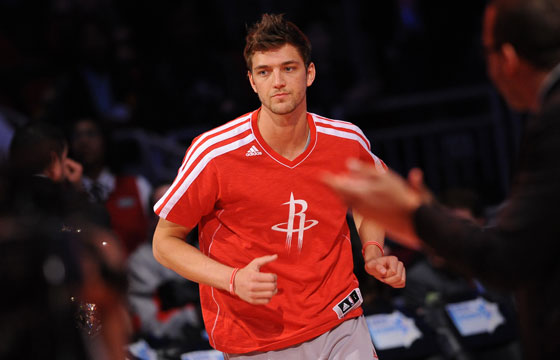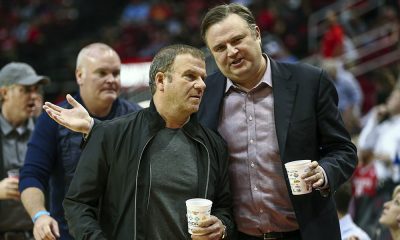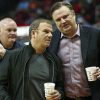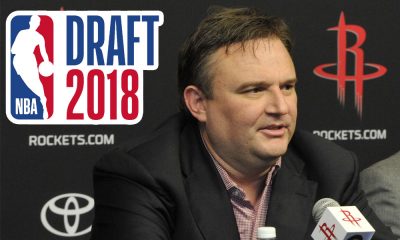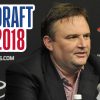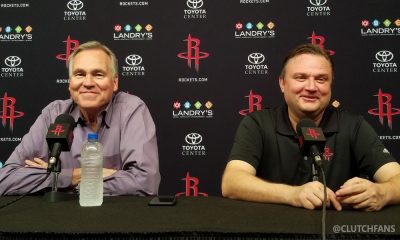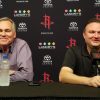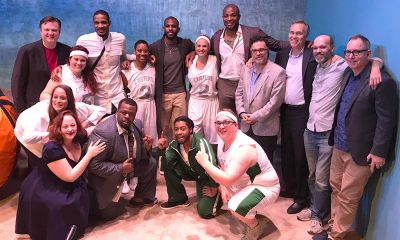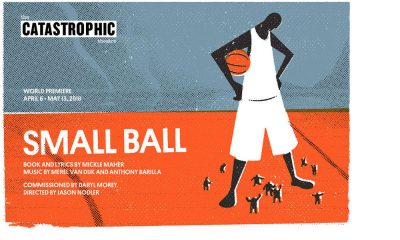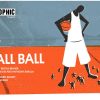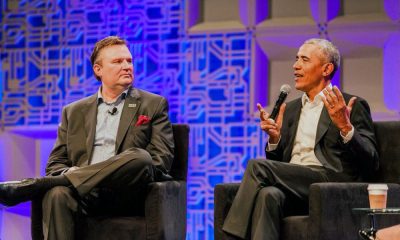Houston Rockets
The Chandler Parsons Contract, Take Two
The current version of this article contains a minor change as of May 30, 2013. Back on December 23, I made my first formal attempt at explaining the intricacies of the NBA player contract of Chandler Parsons. As a mere fan (and not an actual NBA insider or team executive), I based that piece on educated conclusions using the information available to me at the time. Unfortunately, only after putting out my prior article was I made aware of additional information that greatly impacts the overall analysis of Parsons’s contract. Hence, the following is a (more informed) analysis of one of the more interesting player contracts in the NBA today.
Published
12 years agoon
The current version of this article contains a minor change as of May 30, 2013.
Back on December 23, I made my first formal attempt at explaining the intricacies of the NBA player contract of Chandler Parsons. As a mere fan (and not an actual NBA insider or team executive), I based that piece on educated conclusions using the information available to me at the time. Unfortunately, only after putting out my prior article was I made aware of additional information that greatly impacts the overall analysis of Parsons’s contract. Hence, the following is a (more informed) analysis of one of the more interesting player contracts in the NBA today.
Parsons Not Subject to Rookie Scale Salary Rules
The NBA has specific rules governing first round draft picks and the contracts they can sign, commonly referred to as rookie scale contracts. Such contracts are four-year deals, fully guaranteed for the first two years, with team options for each of the third and fourth years (each of which must be exercised almost an entire season in advance) and a right of first refusal after that.
However, Parsons was not a first round pick. He was selected in the second round (the 38th overall selection) of the 2011 NBA Draft. Therefore, he is not subject to such rules. Second round picks can be signed to contracts much like any other player. Unlike first rounders, second rounders do not have any scale salary by which a team may exceed the salary cap to sign them. Most second rounders receive either a one- or a two-year deal at the league minimum salary. Such contracts are oftentimes non- or only partially guaranteed. The only ways in which a team may sign a second round pick to anything more are for that team to have either cap room or a salary cap exception (such as the Mid-Level Exception) at its disposal.
The Contract Structure
In December 2011, the Rockets signed Parsons to a four-year, $3,629,500 contract (using a sliver of remaining salary cap room they had at the time). Like the contracts previously given to Jermaine Taylor and Chase Budinger, Parsons agreed to bind himself to the team for four years in exchange for an increased salary in the first year ($850,000 instead of the league minimum of $473,604) and second year ($888,250 instead of the league minimum $762,195), both of which are fully guaranteed.
However, Parsons seems to have had a better agent than either Taylor or Budinger.
Whereas Taylor and Budinger agreed to give the Rockets fully non-guaranteed Years 3 and 4 (together with a team option on Year 4), Parsons and his agent negotiated for additional financial security. By Parsons having not been waived by the Rockets before January 1, 2013, Parsons’s salary for the 2013-14 season ($926,500) became partially guaranteed for $600,000; and if Parsons is not waived by June 30, 2013, his 2013-14 salary becomes fully guaranteed. Furthermore, if the Rockets do not waive Parsons by January 1, 2014, his salary for the 2014-15 season ($964,750) becomes partially guaranteed for $624,771 (the same percentage partial guarantee as in Year 3); and if Parsons is not waived by June 30, 2014, his 2014-15 salary becomes fully guaranteed.
The key bit of new information relating to the Parsons contract?
It also has a team option on Year 4.
This means that, despite having already guaranteed Parsons $624,771 for the 2014-15 season, the Rockets have the right to decline their team option, essentially “eat” that money, and make Parsons a restricted free agent. If the Rockets instead exercise that team option, then when his contract expires in 2015, Parsons will be an unrestricted free agent.
What Happens Next?
1. Parsons is “stuck” on this contract until at least 2014.
The Parsons Contract was negotiated at a time when it was not certain whether he would become a legit NBA player. At that time, this deal was quite a coup for both Parsons and his representatives. Now, however, with Parsons playing at a very high level, the contract may seem like a long-term (financial) prison sentence.
First off, there is little incentive for the Rockets to let Parsons out of his dirt-cheap deal. They have him locked up on a very favorable deal for this year and two more after that. For a team trying to manage its cap situation in order to add a second (or even third) star player, giving Parsons a raise before his contract is up in 2015 might jeopardize those plans.
And even if the Rockets wanted to give Parsons a raise before 2015, there really is no feasible way to do that without risking his departure to another team (with the possible exception of a renegotiation-and-extension, discussed below).
Since only Year 4 of Parsons’s deal is a team option (as per CBA rules, contracts can only contain one option year), there is no way to make Parsons a free agent before 2014 without waiving him. Unfortunately for the Rockets, Parsons is such a good player that there is no way he would clear waivers — other teams would be climbing over each other to get a chance to claim him off waivers. So, unless the Rockets want to give Chandler away to another team without receiving anything in exchange, they need to simply hold onto him on his current deal. At least through next season.
Rockets GM Daryl Morey even brings up — perhaps against his better judgment — that Parsons approached the team about restructuring his contract. See Zach Lowe’s interview with Morey here, and skip to the 16:40 mark.
2. An extension of Parsons’s contract is not a viable alternative.
Because Parsons is a veteran on a four-year deal (other than a first round draft pick on a rookie scale contract), he is technically eligible for an extension from the Rockets in 2014. Many fans have suggested that the Rockets give Parsons an extension in order to give him a substantial raise and keep him under contract beyond 2015. However, the rules governing contract extensions do not make this a financially feasible option for Parsons.
Under the CBA, a player may not receive an extension giving him a raise in excess of 107.5% of his salary in the last season of the contract being extended. For Parsons, an extension would cap his 2015-16 salary at $1,037,106. I’m guessing that Parsons (and his agent) feels that he can do better than that on the open market.
So, go ahead and cross the contract extension route off the list of possibilities, unless . . .
3. A contract renegotiation remains a possibility but is not in the team’s best interests.
While a contract extension is not economically feasible for Parsons, there remains the possibility of a contract renegotiation with a simultaneous extension. Only teams that are under the salary cap can renegotiate player contracts. For instance, the Oklahoma City Thunder implemented this “renegotiate-and-extend” approach with Nick Collison in 2010 (you can read more about that deal here). While the 2011 CBA changed the rules about these deals to limit the decrease in salary a player could accept in the first year of his extension to 40% (making Collison’s particular contract impossible to do now), the Rockets could still position themselves to keep Parsons locked up via a simultaneous renegotiation and extension.
However, this approach would seriously hamper the Rockets’ overall rebuilding strategy.
First of all, the Rockets would need to be under the cap during the 2014-15 season for this to even be possible. That would mean that the team likely failed in its attempts to acquire a second star player between now and then. It also means that the team did not even use its cap room during the summer of 2014 or at the February 2014 trade deadline to otherwise improve the team beyond 2014. Unless Parsons has developed into a bona fide perenniel All-Star caliber player by that time, there is little incentive to jeopardize the team’s cap situation — and its continued pursuit of that second star player — for the sake of locking up a good (but not great) player.
Also, even with a Collison-like contract in place, Parsons would have a relatively substantial cap figure locked in on the Rockets’ roster entering the summer of 2015, when the contracts of Jeremy Lin and Omer Asik are set to come off the books and the Rockets possibly positioned to add another significant piece to the puzzle.
4. Letting Parsons hit restricted free agency is risky but may be how team does right by him.
The renegotiation-and-extension route assumes that the Rockets do, in fact, pick up their team option on Parsons. However, if the Rockets (1) didn’t have the requisite cap room available to accomplish a renegotiate-and-extend deal, (2) felt that they could potentially lock up Parsons longer-term at a more reasonable cost through restricted free agency than if he hits unrestricted free agency in 2015 and/or (3) feared that Parsons would hold a grudge against the team if it kept him on his dirt-cheap deal for a fourth season, then they might opt to decline Parsons’s team option and allow him to hit restricted free agency in 2014.
Because Parsons would have been under the same contract with the Rockets for three seasons (2011-2014), the Rockets would have full Bird rights on Parsons and could exceed the salary cap to re-sign him to a five-year deal at any amount (up to a “James Harden-level” max contract). Presumably, this option would only be explored if the team had already used up most of its cap space to add a second star player or other significant pieces.
Making Parsons a restricted free agent would likely be a huge show of good faith on the Rockets’ part, but it would not be without great risk. Many of us remember what happened to the Cleveland Cavaliers back in 2004. The Cavs decided to do Carlos Boozer a solid and decline their cheap team option in order to make Boozer a restricted free agent, looking to lock him up long-term. Unfortunately, once Boozer became a free agent, the Utah Jazz swooped in with a huge contract offer. Boozer bolted Cleveland for greener pastures, and the Cavs were left holding the bag.
Also, from a pure numbers standpoint, it is unlikely that the Rockets could save enough money over the course of a new deal with Parsons signed in 2014 — either with Houston or in an offer sheet with another team — versus one he signs as an unrestricted free agent in 2015 to justify foregoing the opportunity to keep Parsons at his currently-scheduled $964,750 salary for 2014-15. Remember, if the Rockets decline their team option, Parsons would still pocket $624,771 from Houston (which would count against the cap) on top of whatever he could get in free agency.
However, if the Rockets are confident that Parsons would work with them on a reasonable long-term deal without bolting as a free agent, their show of good faith may be reciprocated, to everyone’s advantage.
5. Letting Parsons hit free agency in 2015 may best help the Rockets’ cap situation.
Notwithstanding the potential benefits above of taking care of Parsons in 2014, the fact that the Rockets (even with the addition of another significant piece in the next three years) might possibly have substantial salary cap room in 2015 means that there may be much to be gained by exercising that team option, keeping Parsons on his contract for a fourth season, and letting him hit unrestricted free agency in 2015.
Because of Parsons’s miniscule 2014-15 salary, his cap hold on the Rockets’ books when he hits free agency until he is signed (either by the Rockets or another team) will be a paltry $1,833,025.
This means that the Rockets could use all of its available cap room in 2015 — except for that $1,833,025 cap hold amount — to pursue a major free agent (such as Kevin Love, who can opt out of his contract with the Minnesota Timberwolves that summer), then later exceed the salary cap to re-sign Parsons to any amount using his Bird rights.
Admittedly, this approach will involve asking Parsons and his representatives to trust in the organization to do right by Parsons once the dust settles on the team’s other summer plans. This may be a tough task, given that the team will have already foregone the chance to do right by Parsons in 2014 by picking up its option on the fourth season. Parsons’s agent will certainly market his client around the league to gauge his “fair value” as a free agent, so numbers would likely be discussed while other plans play out.
Conclusion
Barring a trade, the Houston Rockets and Chandler Parsons are stuck with each other under his current contract until at least 2014. An apparent victory for the player at the time of its original execution, the contract is now one of the most team-friendly in the entire league. The Rockets have Parsons locked up until 2015 for a mere pittance. They also have the option to either make Parsons a restricted free agent in 2014 or keep him around for a fourth cheap year and let him hit unrestricted free agency in 2015. Parsons’s low salary (and his cap hold in the summer of 2015) will position the Rockets nicely to continue to add significant pieces over the next several years.
>> Comments
Houston Rockets
Looking Back on the Trade for Phoenix’s Draft Picks
Are the Rockets set to cash in on Phoenix’s downfall or could a Suns retool murky the waters?
Published
4 months agoon
March 12, 2025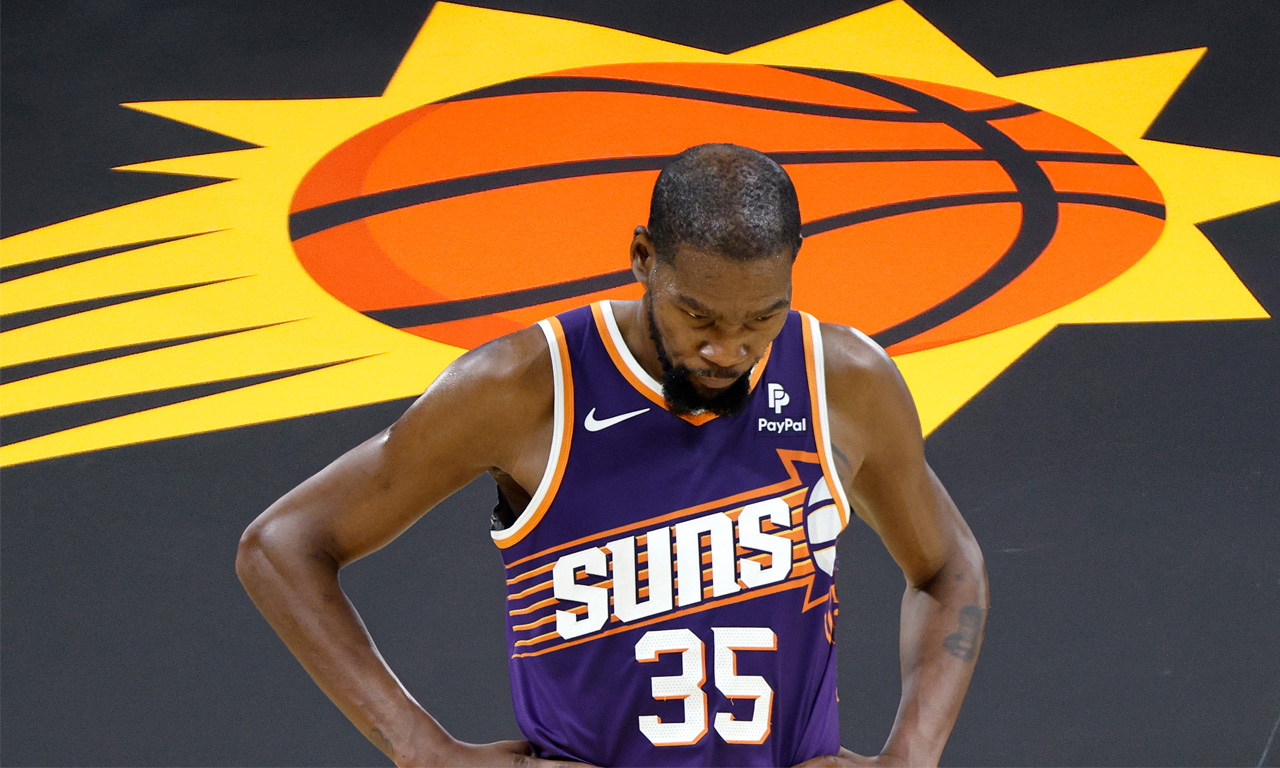
As the Houston Rockets set to host the Phoenix Suns tonight, it seems the right time to take a look back at the trade that linked these two franchises together for the foreseeable future.
This past June, the Rockets made a trade with Brooklyn that sent back to the Nets control of their 2025 and 2026 unprotected first-round picks. In exchange, the Rockets received a large chunk of Phoenix’s future (2025, 2027, 2029) and control of the Dallas Mavericks’ 2029 first.
In essence, the Rockets traded one pick and one swap for two picks and two swaps. All unprotected.
Thoughts At The Time of the Trade
If I’m going to discuss the current outlook of this trade, I have to be honest about how I saw it at the time of the move. While I didn’t hate this trade initially, I definitely didn’t love it either.
I liked that the Rockets increased their overall trade assets. I also liked that they extended the timeline to be able to make a bigger trade and I also appreciated that they kept control of the 2027 Brooklyn swap.
But I didn’t like that the Rockets gave up what seemed like the more established value (Brooklyn) for a more uncertain gamble (Phoenix). The Rockets did not control a “tanking runway” of picks to offer back to Phoenix — all of the picks Houston got in the deal were in staggered years (’25, ’27, ’29). I also felt Brooklyn, who badly needed to rebuild, got away with paying market value to get their picks back despite the fact that the Rockets invested years in watching those picks appreciate up to the point that they had the Nets completely over a barrel.
Net-net: I felt like more certainty was traded for less certainty and it was more of an equitable trade for both teams rather than Brooklyn paying dearly to get back the things only the Rockets could offer.
There were two ways I thought this trade could pay dividends: The Suns needed to flame out immediately, as in this season (unlikely), or the Rockets could trade all those pick assets as part of a deal for a real superstar in the next 12-18 months (more likely).
In a testament to how quickly change can occur in a very unpredictable NBA, four things have happened that have been positive indicators for the Rockets in making this move.
The Suns are fading
While Phoenix had major salary cap issues, dealing with the second apron, they didn’t appear to have problems on the court. They jumped out of the gate 8-1 and looked like a legitimate contender behind their star trio of scorers in Kevin Durant, Devin Booker and Bradley Beal.
Given Houston controlled Phoenix’s pick this year via a swap, it looked like the Rockets would come up empty-handed on the trade this season.
That changed quickly.
Injuries, serious depth concerns and a lack of a defensive identity has sent Phoenix spiraling. Booker’s availability has been inconsistent, forcing Durant to carry the load, while Beal has not quite fit in at all. Their financial limitations, thanks to owner Mat Ishbia’s all-in spending spree, have handcuffed their ability to improve the roster around the three stars.
The Suns are sitting 11th in the West, having gone 22-34 since that hot start, and are currently trying to catch a depleted Dallas squad to get back into the play-in picture.
As of right now, the Rockets project to end up with a lottery pick (albeit a late one) this season out of the trade.
Phoenix was caught shopping Durant
Because the Suns struggled so hard after the start, they tried to make a major move at the deadline but could not unload Beal, in large part due to his no-trade clause.
As a result, they may have made a misstep: They openly tried to trade Durant, which inevitably became public news.
Now? Durant will almost assuredly be traded this summer — likely to a destination that he handpicks. This means the Phoenix Suns will have to look at all possibilities for their future, including potentially having to give Rafael Stone and the Rockets front office a call.
But keep in mind, the Rockets can not offer Phoenix the ability to completely rebuild via the draft right now. Phoenix’s 2026 pick is controlled by Washington. They would have to get extremely creative to set that stage. A retool in Phoenix is much more likely.
Could Brooklyn have been better than expected?
This one is tougher to gauge.
The Brooklyn Nets are currently tied for fifth-worst team in the league, giving them strong lottery odds this summer. This was expected. After all, the Nets, even with a healthy Mikal Bridges and a full roster, were not a good team last season, closing the year 20-41 in the final three quarters of the season. The Rockets ended up with the #3 pick (Reed Sheppard) as a result of Brooklyn’s mediocrity.
However, if the Rockets had not placed that pick back in Brooklyn’s hands, would the Nets be better than this?
Brooklyn brought in a new coach in Jordi Fernandez that has had a positive impact. They have dumped off players, such as Dennis Schroeder and Dorian Finney-Smith, that impacted winning. The bar to make the play-in in the East (.415 winning percentage) is obscenely low, with Brooklyn being just five wins away from it at the moment.
And on top of that, Brooklyn did have lots of draft capital that they could have moved to try to win now.
It’s very tough to say as you don’t know if a team with Bridges still in Brooklyn might have actually been worse than this current squad, but you could make a case that the pick the Rockets would have ended up with from Brooklyn this season would be eerily similar to the one they will end up getting from Phoenix this year.
Again, this is a tough call.
Nico Harrison Hooked the Rockets Up
As part of the trade, the Rockets got control of the Dallas Mavericks’ 2029 first-round pick (unprotected, of course). While there’s really no way of knowing what a pick will be five years out, we did know that Luka Doncic would be just 29-30 years old that season and it was fairly etched in stone that he would be the core piece of a Dallas squad that season.
Enter chaos in Dallas.
Doncic was shipped out in the trade that shocked the world, which could have a major impact on the Rockets. Dallas’ current core of Kyrie Irving and Anthony Davis will be 37 and 36 years old that season, respectively.
On paper, the value of that pick shot up.
Final Summary
Right now, the outlook on these picks looks strong. One source stated off the record that they feel the 2029 Phoenix pick is the best pick asset out there that is owned by another team. The Rockets would be reluctant to add that one specifically into any trade unless it’s for a truly legitimate star.
But if there is any lesson that the NBA teaches us over and over again, it’s that it’s very hard to predict where a team will be a year from now, much less three years from now.
Can the Rockets pressure Phoenix and leverage the ownership they have of their draft capital to get what they really want (Booker) from them? Could a Suns retool around Booker and Beal, with the right pieces and assets acquired from a Durant trade, significantly change their on-court outlook and cap sheet — which in turn could damage the value of the picks Houston controls?
Bottom line is it has worked out well this season, and the future forecast at the moment is promising. The current value of those future picks appears strong. What will likely determine history’s final grade for this trade will be how it sets them up for the trade to come, and that’s where fans will be looking to Stone and the front office for action starting this summer.
Houston Rockets
Amen Thompson’s ankle injury will be re-evaluated in one week
“The things he does you can’t replicate,” says Rockets coach Ime Udoka
Published
4 months agoon
March 10, 2025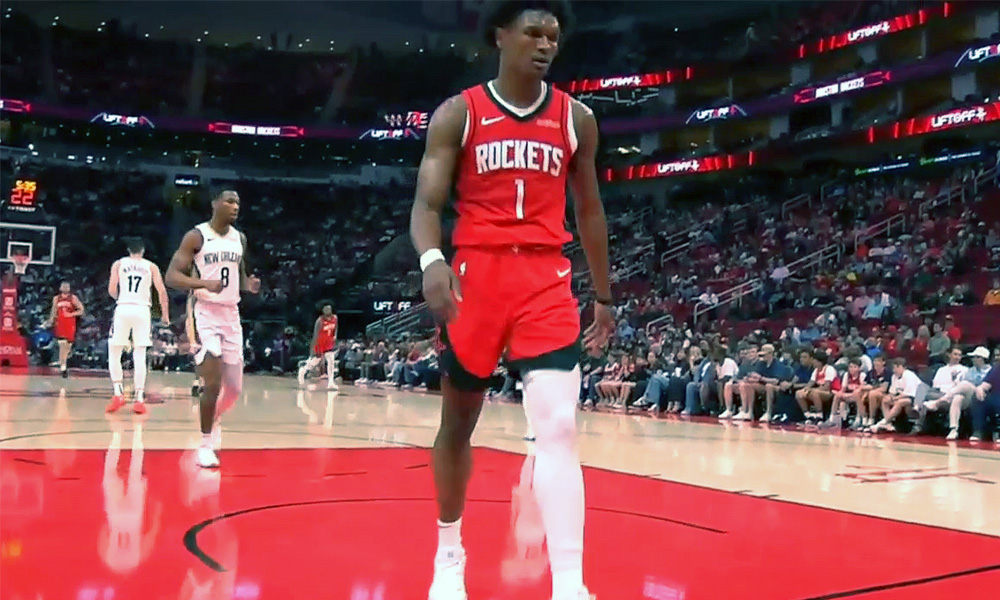
Rockets young star Amen Thompson will have his ankle injury re-evaluated in one week, according to Ime Udoka.
Thompson had an MRI on Sunday and the Rockets coach confirmed all imaging (X-ray, MRI) was negative.
“Just some swelling and pain, obviously,” said Udoka.
If you listen to Udoka, you can tell he knows how special Amen is to this team. He said the Rockets are missing a lot by not having him out there.
“Obviously, the things he does you can’t replicate,” said Udoka. “[Amen is] a guy that plays every position for us. When one goes down, he runs the point. If another is out, he runs the four.”
Amen is one of the best defensive players in the game, and as a one-on-one defender of guards/wings, he might already be the best in the league in just his second season. He’s holding his opponents to 40.5% shooting from the field, tops in the league.
“He’s a very unique defensive player,” said Udoka. “We got some guys that do some great things there, but I like to put him and Dillon on the best two usually, night to night. You got Tari and that’s a luxury as well, but the way he goes about it is different. His athleticism, size, speed, strength, shotblocking ability, steals… he’s all over the place.”
“Hard to replicate for sure.”
Amen injured his ankle late Saturday night in a blowout win against the Pelicans, but the unfortunate part was he probably should not have been on the floor in the first place.
The Rockets left Amen Thompson in the game in a blowout to get one more rebound for a triple-double and he just got injured. He's heading to the locker room with a limp. https://t.co/UBtrEpgWuU pic.twitter.com/D8GeKP8sQk
— ClutchFans (@clutchfans) March 9, 2025
The Rockets had built well over a 30-point lead by early fourth quarter. Jalen Green was able to rest the entire fourth. Alperen Sengun came out of the game with 7-8 minutes left while Dillon Brooks and Tari Eason came out with 6:00 left. But Thompson, who had posted an insane +39 on-off number, remained in the game because he was one rebound shy of a triple-double with 15 points, 11 assists and nine rebounds.
Udoka addressed that decision on Monday before the game against Orlando.
“What I typically don’t do is wholesale substitutions,” said Udoka of the decision to keep Amen in the game. “Albeit 30[-point lead] at six minutes [left] is different than losing to Minnesota, a 16-point lead with four minutes [left].”
“I’ve seen it go both ways in the past. You take out guys too early and have to bring starters back, and vice versa.”
Thompson has played in 60 games this season, five short of being eligible for postseason awards. He absolutely should be up for an All-Defensive nod this season so keep an eye on him getting back in time for that. He would need to return to action no later than April 4th for the game against the OKC Thunder in order to play enough games to be eligible.
Houston Rockets
How the Kyrie Irving Injury Impacts Rockets
Houston’s draft positioning and offseason plans could be impacted by Dallas
Published
4 months agoon
March 4, 2025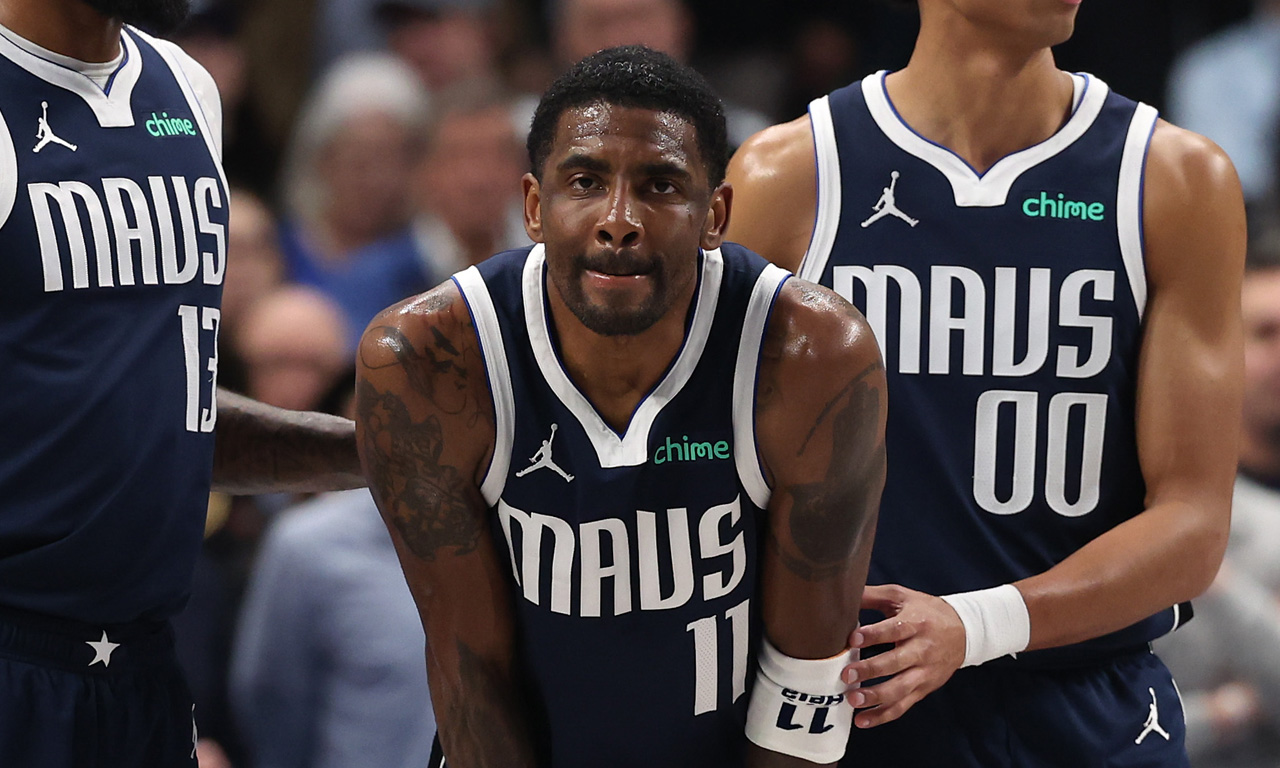
Dallas Mavericks guard Kyrie Irving was injured Monday night and the news dropped on Tuesday that the knee injury is serious — a torn ACL in his left knee that will end his season and a good portion of next season as well.
Brutal. I can’t think of an NBA team that imploded faster than the Dallas Mavericks.
You trade away a 25-year-old phenom who just hoisted you on his back en route to the NBA Finals a year ago. You cashed in that golden ticket to go all-in on a trio of aging stars in Kyrie, Anthony Davis, and Klay Thompson.
Bold strategy, Nico. Let’s see if it pays off.
(Narrator: It’s not paying off.)
The Mavericks had some interesting potential this year and maybe the next couple of years once everyone was healthy, but now? Their star guard is likely out until the calendar year 2026 and Klay and AD aren’t getting any younger nor more durable. The Mavericks may have actually swapped their future for a present that never arrives — and Dallas GM Nico Harrison has to be feeling overwhelming pressure right now.
So how does this impact the Rockets?
For starters, Houston has a game remaining on the schedule against Dallas on March 14th at Toyota Center — Davis may or may not be back for that game.
More importantly, Dallas is the 10th seed in the West at the moment, just 3.5 games ahead of the Phoenix Suns (11th seed). The Rockets control Phoenix’s first-round pick unprotected this season via a swap. We need as many West teams as possible ahead of Phoenix to keep them out of the play-in/playoffs and to push them as deep into the lotto as possible.
This complicates that. Phoenix’s remaining schedule is the toughest in the NBA by a good margin, with plenty of games left against the league’s best teams, so it still looks promising overall — but we’re talking about Kevin Durant, Devin Booker and Bradley Beal. They can still get hot at the right time while Dallas may struggle.
So keep a close eye on that. The good news is the Portland Trail Blazers are one of the hottest teams in the league and they are (shockingly) nipping at the Arizona squad’s heels.
Taking a look ahead to the offseason, the Kevin Durant Pursuit will be big.
This one is a little more complicated for Houston. The Rockets really want Devin Booker but, as of now, the Phoenix plan appears to be to trade KD this offseason and retool around Booker. The Rockets will have interest in Durant but they’re not going to sell the farm (prospects and all the picks) for a 37-year old like they would for Booker.
Three teams that I’ve heard a lot about from Rockets circles that will be in the mix are Houston, Minnesota and Dallas — Timberwolves and Mavericks have been considered the main competition. But, a lot of this will depend on Durant himself and where he wants to play at this stage of his career.
Keep in mind also, if the Suns are “retooling” around Booker and Beal (holding the no-trade clause), then they could be placing a higher priority on win-now players over the return of their own draft assets. The Rockets definitely have the best assets overall to offer up in any trade package between those three teams, but if Phoenix does prefer finding the right ready-to-win players around Booker/Beal, that gives Dallas and Minnesota a real chance.
This injury “may” take Dallas out of the equation, and they are/were definitely a contender for KD’s services given his past relationship with Kyrie and the way Dallas was positioned to win right now. Does KD at his age want to wait for Kyrie to be healthy?
And one last friendly reminder: The Rockets control that Dallas 2029 first (unprotected).
Houston Rockets
Rockets Sign David Roddy to Two-Way Contract
Former first-round pick has played with the Grizzlies, Suns and Hawks
Published
4 months agoon
March 3, 2025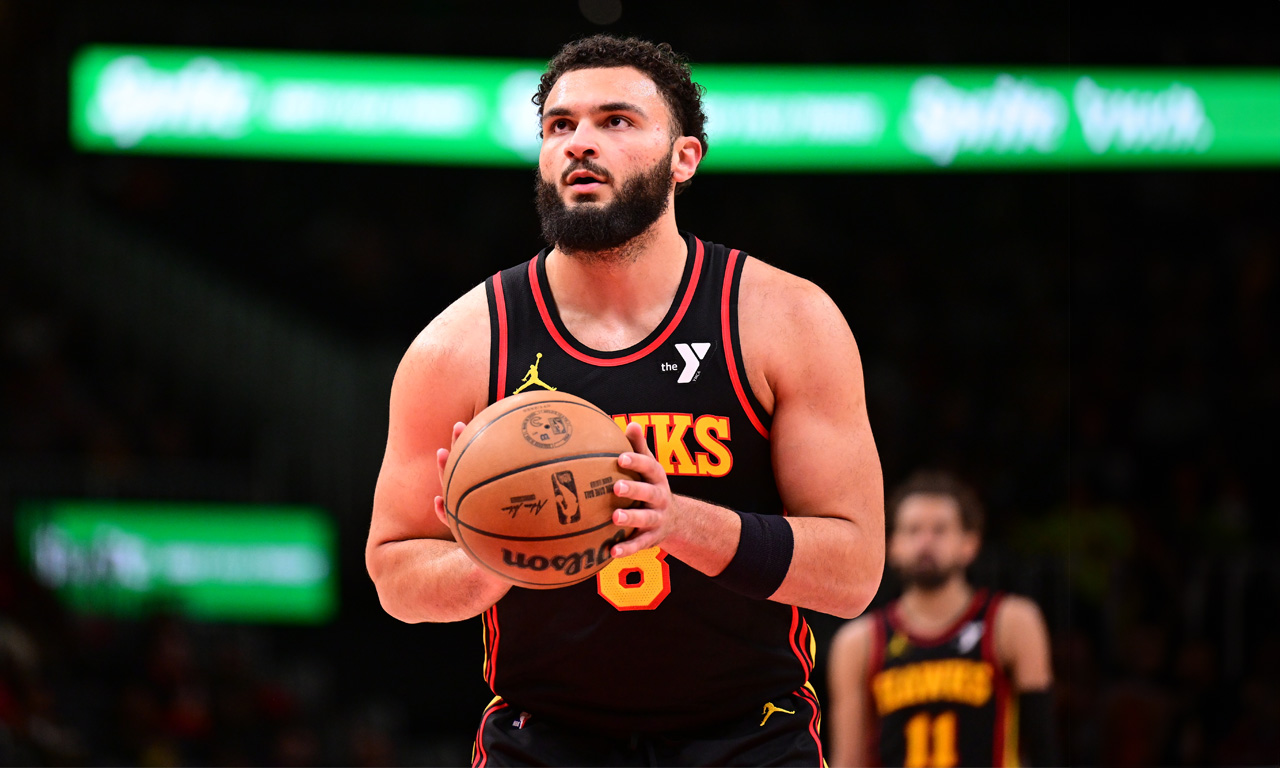
The Rockets made a move on Monday, signing former first-round pick David Roddy to a two-way contract.
The two-way spot opened up after the front office signed Jeenathan Williams to a standard four-year, $8.2 million contract (with friendly team options all along the way).
Roddy is 6-foot-5 and 250+ pounds but sports a 6-foot-11 wingspan. He was taken with the 23rd pick in the first round of the 2022 NBA Draft — six selections after the Rockets drafted Tari Eason. A standout in college, Roddy averaged 19.2 points, 7.5 rebounds, 2.9 assists, 1.2 steals, and 1.1 blocks per game during his junior season at Colorado State.
Roddy, who turns 24 later this month, is a physical player who can play multiple positions. He’s a solid rebounder for his size/position. He has played in 165 games over three seasons with the Grizzlies, Suns, Hawks and most recently Sixers, averaging 6.2 points and 2.9 rebounds per game.
The guard/forward has not shown efficient shooting, however — he’s a career 30.5% three-point shooter and just 68.4% from the line. His defense is better inside than out.
Ultimately, it will be those two things — three-point shooting and defense — that will determine his chances of carving out a consistent role in the league.
All in all, it’s a low-risk signing and the Rockets get a look at a prospect that fits their age timeline.
Houston Rockets
Houston a potential landing spot for Ben Simmons post-buyout?
Published
5 months agoon
February 6, 2025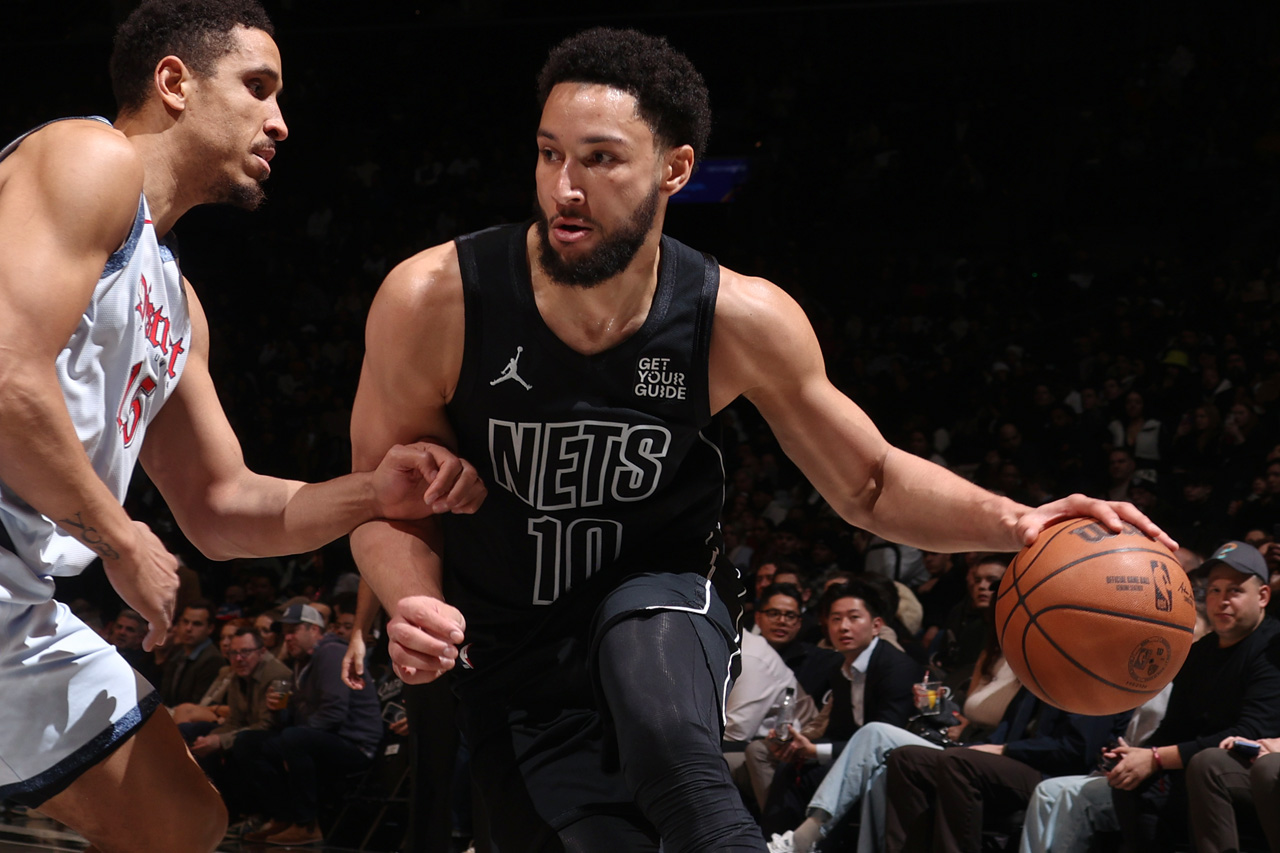
ESPN NBA analyst Brian Windhorst said on Thursday’s NBA Trade Deadline show that Brooklyn Nets forward Ben Simmons is working on a buyout and the Houston Rockets is a potential landing spot for him.
“Cleveland and Houston are two situations for Ben Simmons,” said Windhorst.
Brian Windhorst says the Cavaliers and Rockets are buyout locations for Ben Simmons.
Thoughts? pic.twitter.com/7ly4mvmxr5
— ClutchFans (@clutchfans) February 6, 2025
Advertisement
Rockets coach Ime Udoka was an assistant coach in Philadelphia in 2019-20 when Simmons was with the Sixers, before injuries took a significant toll. In fact, Udoka, when speaking about Amen Thompson earlier this season, brought up some comparisons to Simmons.
“The skill set is there, and it’s something that’s unique with his speed, athleticism, size, passing ability, and all those things,” said Udoka of Thompson. “I coached somebody, Ben Simmons, who had similar traits… as far as size and ability to push the pace, and find guys and finish. There are some similarities there.”
Both Thompson and Simmons are known for their elite athleticism, defensive versatility, and ability to create opportunities in transition.
However, can Simmons help the Rockets today? That’s the tough question.
Simmons has played in 33 games this season, averaging 6.2 points, 6.9 assists, 5.2 rebounds, 0.8 steals and 0.5 blocks in 25 minutes a night. He does not shoot threes (like, at all) — he has only attempted two threes in the past three seasons combined.
Ideally, he does not play in front of your young forwards of Amen, Tari Eason and Jabari Smith Jr. and on that basis alone, I think I would pass. But, Ime loves defensive dogs and he could use some extra ballhandling on the roster. You can see that there’s little in the way of offensive organization when Fred VanVleet is out.
There would be a comical full circle moment though if the Rockets did sign Ben Simmons, considering the Rockets were heavily criticized for trading James Harden in 2021 to Brooklyn instead of to Philadelphia for Simmons. The Rockets clearly made the right choice there.

